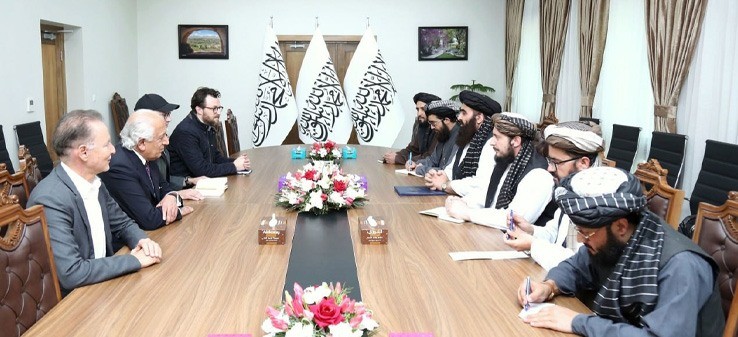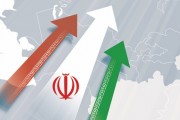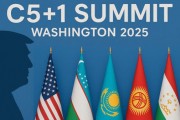Publish Date
Sunday 27 April 2025 - 11:46
recommended
0
Taliban-US Negotiations
Implications of Taliban-US Negotiations
Although the Biden administration maintained a seemingly distant relationship with Kabul after the Taliban’s return to power, Donald Trump broke this pattern by sending a delegation to Afghanistan, initiating direct engagement with the Taliban. While this unexpected and surprising move appears to have positive implications for Afghanistan and the Taliban government, with Taliban officials interpreting the visit of the American delegation as a beacon of hope for their future, the re-entry of the United States into Afghanistan may once again turn the country into a battleground for rivalries.
By: Mir Ahmad Mashal is a senior expert in international relations
12 minutes reading
Introduction
The unannounced presence of a US delegation led by Adam Boehler, the US special presidential envoy for hostage affairs, in Kabul was an unforeseen event in US-Taliban engagement. More surprisingly, the visit also included Zalmay Khalilzad, the former US special envoy for Afghan affairs. While former President Joe Biden had banned official visits to Taliban-controlled Kabul, and given Trump’s previously harsh stance against the Taliban, it was thought that the Taliban would not have a good time under Trump. However, Boehler and Khalilzad’s warm handshake with Amir Khan Muttaqi at the Taliban’s Foreign Ministry painted a different picture of Trump's current approach.
This unexpected event, which starkly contrasted the US administration’s declared and actual policies, raises the question: is this merely a tactical one-off gesture, or does it represent a strategic vision? Depending on the answer, what could be the implications of this event for the Taliban government and Afghanistan?
A Tactical Move or a Strategic Measure?
From one perspective, the US delegation’s visit to Kabul for the release of an American prisoner might seem like a minor issue without significant long-term goals. This hypothesis could be supported by Trump’s unique personality—transactional, unbound by principles or norms, and willing to act unconventionally to achieve his objectives.
There are numerous examples of such behavior. During his first term, Trump held a direct meeting with Kim Jong un, one of America’s fiercest enemies— Something that has not been seen in the behavior of any American president in the past half century. More recently, his representatives met directly with Hamas leaders in Qatar. Trump's delegation to Kabul can be seen in the same light. If this hypothesis is correct, the visit was a tactical action rather than a signal of a long-term policy.
According to this viewpoint, the US presence in Kabul was a simple exchange, possibly non-repeatable. Nonetheless, even this brief contact was beneficial for the Taliban, serving as a powerful propaganda tool. However, such an explanation cannot fully account for the complexity of the matter. While part of the behavior may stem from Trump’s unique approach, Afghanistan is a geopolitical hotspot too critical for the US to ignore.
Afghanistan, with its strategic geopolitical codes, plays a significant role in regional and global competition, making it unlikely for the US to easily relinquish influence there. A deeper look suggests that direct US engagement with the Taliban—initiated through the release of a prisoner—is likely to continue, driven by broader, long-term goals. One might argue that Biden’s administration also released two American prisoners from Taliban custody, via indirect channels, and now the only difference lies in Trump’s preference for direct, unmediated methods.
In response to such skepticism: if the delegation’s presence in Kabul was solely about freeing a prisoner, why was Khalilzad—Trump’s former special envoy—also sent? Clearly, the issue is not as simple and one-dimensional as it may seem; rather, it reflects a complex process with potentially significant implications for Afghanistan’s future, which will now be briefly discussed.
Constructive and Positive Impacts
-Facilitating International Recognition of the Taliban Government
Despite some neighboring countries, as well as China and Russia, establishing informal relations with the Taliban after their return to power—even upgrading ties to the ambassadorial level in some cases—the Taliban government still lacks formal international recognition. The main reason for this diplomatic isolation is the United States.
If the US begins formal negotiations with the Taliban, this would likely help end the Taliban’s isolation. This development would particularly influence European countries, which are waiting for clear signals from Washington before engaging with the Taliban. Although it's premature to assume formal recognition will happen soon, direct US engagement could serve as a model for others to initiate de facto relations with the Taliban government.
-Enhancing the Stability and Survival of the Taliban Government
The greatest fear surrounding the Taliban government is the potential escalation of US hostility towards it. It was commonly assumed that due to the 20-year war as well as anti-Taliban figures in Trump’s administration, the US would adopt harsh policies that could further destabilize the Taliban regime. Opponents of the Taliban have repeatedly voiced such concerns in their analyses. However, with the initiation of direct US-Taliban negotiations, such theories appear undermined.
Furthermore, the US’s willingness to negotiate will significantly boost the Taliban’s confidence and sense of regime stability. Beyond the regime’s leaders, this visit will also have a considerable impact on public perception of the Taliban’s viability, challenging narratives that predicted the group’s demise.
-Contributing to the Improvement of Afghanistan’s Economy
Another key impact of direct US-Taliban talks could be economic. Despite the Taliban’s extensive propaganda about their economic management—claiming independence from foreign sources—Afghanistan's economy remains heavily reliant on external support, especially in the form of cash inflows.
Many current Kabul residents are returnees from other provinces or neighboring countries. Due to the lack of economic dynamism and productive export capacity, Afghanistan’s economy has become addicted to foreign aid. A clear example of this dependency was seen when Trump suspended aid to Afghanistan: immediate economic chaos ensued, with the afghani currency, once stable, suffering extreme fluctuations. The Taliban were forced to shut down currency exchanges across the country to control the crisis.
It is plausible that renewed US engagement might reopen the flow of financial aid, easing pressure on Afghanistan’s struggling economy and helping to reduce economic turmoil.
Destructive and Negative Impacts
Despite the seemingly constructive and positive aspects, direct negotiations between the United States and the Taliban—assuming they lead to improved relations—also entail several drawbacks, which are outlined below.
-Increased Internal Divisions Within the Taliban
While direct negotiations with the U.S. may raise trust among Taliban ranks, they could also create or exacerbate internal divisions within the group. This assumption stems from the likelihood that some members of the Taliban may come to see the past twenty years of jihad as futile if ties with the U.S. are established. This could lead to the formation of internal factions opposing the leadership and top decision-makers of the group. Given the Taliban's strong internal surveillance apparatus, an outright split might be unlikely, but the defection of dissatisfied members to Islamic State of Khorasan province (ISKP) group remains a possibility. ISKP could, in the future, easily recruit disillusioned Taliban members by using propaganda aimed at discrediting the Taliban's leadership.
-Rising Regional Distrust Toward the Taliban Government
Another significant negative impact of the continued and secretive negotiations between the U.S. and the Taliban is a potential rise in regional distrust toward the Taliban government. Past criticisms from regional countries over how the Taliban engages with the U.S. may escalate, becoming more overt in the policies and actions of neighboring states. The cautious stance taken by major regional powers, particularly Russia and China, in dealing with the Taliban is largely due to the enigmatic and secretive nature of the Taliban-U.S. interactions. If such ambiguous dealings persist, regional distrust toward the Taliban government will likely intensify. Direct U.S. engagement with the Taliban might cast a shadow of mistrust over Afghanistan’s regional relationships.
-Securitization of Afghanistan
The most detrimental outcome of the U.S.-Taliban negotiations could be the re- securitization of Afghanistan, leading to the U.S. return to the country. Securitization means that Afghanistan once again makes its surrounding powers sensitive to itself by getting closer to a hostile power. The disastrous aspect of America's presence in Afghanistan is that the U.S. 's return to this country is not seen as a simple relationship, but rather as using Afghanistan as a base to target the interests of powers surrounding Afghanistan.
Some may ask why Chinese or Russian involvement in Afghanistan wouldn't have the same effect and cannot securitize the country. The answer lies in the nature of their presence. First, the presence of Russia and China in Afghanistan is primarily economic and political rather than military or intelligence-driven; Second, Russia and China are not only aligned but also have no security relations or disputes with Afghanistan’s neighbors; And third, their engagement in Afghanistan has largely been constructive, drawing the country into regional political and economic mechanisms.
In stark contrast, a renewed U.S. presence—given Washington's adversarial stance toward Russia, China, and some of Afghanistan’s neighbors—is viewed as hostile and destabilizing. The U.S. seeks to return to Afghanistan primarily to use it as a lever against its competitors and enemies. To illustrate the dangers of such ambitions, it is enough to note that Trump repeatedly floated the idea of reoccupying Bagram Air Base. His comments emphasizing that Bagram is just two hours from China’s critical nuclear sites reveal the underlying intentions behind U.S. negotiations with the Taliban. Beyond everything else, these statements show that U.S. proximity to the Taliban could mean increased closeness to China’s sensitive areas and Russia’s sphere of influence—Central Asia.
Conclusion
After the Taliban’s return to power in Afghanistan, the Biden administration kept a nominal distance from it. But Trump, who is the most pragmatic of all American leaders, broke this rule and opened the door to direct engagement with the Taliban by sending a delegation to Kabul. This unexpected development appeared to carry positive implications for both Afghanistan’s situation and the Taliban government. Taliban leaders considered the visit a beacon of hope for their government’s future, promoting the event optimistically—some even described it as the melting of mutual distrust and a pivotal turning point in relations.
However, beyond this misleadingly hopeful exterior, the beginning of such relations may open the door to a new chapter of darkness. The re-entry of the U.S. into Afghanistan, regardless of what seeds of trouble it sows inside Afghanistan, will once again turn the country into a ground for regional rivalry and struggle. As the U.S. draws nearer to Afghanistan, suspicion and distrust from surrounding powers toward the country are bound to rise, turning Afghanistan back into a security hotspot. History has shown that when Afghanistan attracts a hostile power, it tends to descend into the abyss of instability.
The Taliban may believe that engaging with the U.S. won’t be in a way that affect new regional arrangements. However, the American motives—aimed at achieving goals beyond Afghanistan—will likely drive actions beyond the Taliban’s capacity to manage or control. Though a complete break from the U.S. might be an impractical solution for the Taliban, it remains essential to highlight the risks of aligning too closely with the U.S., especially given the ongoing level of competition and conflict between the United States and the powers surrounding Afghanistan.
It is clear that the Taliban government is free to establish friendly and constructive relations with any nation. However, given the deeply unfavorable memories of past U.S. involvement in Afghanistan, engaging with the U.S.—particularly the potential return of its presence to the country — could impose unpleasant costs on Afghanistan.
Mir Ahmad Mashal is a senior expert in international relations
12 minutes reading
Implications of Taliban-US Negotiations
Introduction
The unannounced presence of a US delegation led by Adam Boehler, the US special presidential envoy for hostage affairs, in Kabul was an unforeseen event in US-Taliban engagement. More surprisingly, the visit also included Zalmay Khalilzad, the former US special envoy for Afghan affairs. While former President Joe Biden had banned official visits to Taliban-controlled Kabul, and given Trump’s previously harsh stance against the Taliban, it was thought that the Taliban would not have a good time under Trump. However, Boehler and Khalilzad’s warm handshake with Amir Khan Muttaqi at the Taliban’s Foreign Ministry painted a different picture of Trump's current approach.
This unexpected event, which starkly contrasted the US administration’s declared and actual policies, raises the question: is this merely a tactical one-off gesture, or does it represent a strategic vision? Depending on the answer, what could be the implications of this event for the Taliban government and Afghanistan?
A Tactical Move or a Strategic Measure?
From one perspective, the US delegation’s visit to Kabul for the release of an American prisoner might seem like a minor issue without significant long-term goals. This hypothesis could be supported by Trump’s unique personality—transactional, unbound by principles or norms, and willing to act unconventionally to achieve his objectives.
There are numerous examples of such behavior. During his first term, Trump held a direct meeting with Kim Jong un, one of America’s fiercest enemies— Something that has not been seen in the behavior of any American president in the past half century. More recently, his representatives met directly with Hamas leaders in Qatar. Trump's delegation to Kabul can be seen in the same light. If this hypothesis is correct, the visit was a tactical action rather than a signal of a long-term policy.
According to this viewpoint, the US presence in Kabul was a simple exchange, possibly non-repeatable. Nonetheless, even this brief contact was beneficial for the Taliban, serving as a powerful propaganda tool. However, such an explanation cannot fully account for the complexity of the matter. While part of the behavior may stem from Trump’s unique approach, Afghanistan is a geopolitical hotspot too critical for the US to ignore.
Afghanistan, with its strategic geopolitical codes, plays a significant role in regional and global competition, making it unlikely for the US to easily relinquish influence there. A deeper look suggests that direct US engagement with the Taliban—initiated through the release of a prisoner—is likely to continue, driven by broader, long-term goals. One might argue that Biden’s administration also released two American prisoners from Taliban custody, via indirect channels, and now the only difference lies in Trump’s preference for direct, unmediated methods.
In response to such skepticism: if the delegation’s presence in Kabul was solely about freeing a prisoner, why was Khalilzad—Trump’s former special envoy—also sent? Clearly, the issue is not as simple and one-dimensional as it may seem; rather, it reflects a complex process with potentially significant implications for Afghanistan’s future, which will now be briefly discussed.
Constructive and Positive Impacts
-Facilitating International Recognition of the Taliban Government
Despite some neighboring countries, as well as China and Russia, establishing informal relations with the Taliban after their return to power—even upgrading ties to the ambassadorial level in some cases—the Taliban government still lacks formal international recognition. The main reason for this diplomatic isolation is the United States.
If the US begins formal negotiations with the Taliban, this would likely help end the Taliban’s isolation. This development would particularly influence European countries, which are waiting for clear signals from Washington before engaging with the Taliban. Although it's premature to assume formal recognition will happen soon, direct US engagement could serve as a model for others to initiate de facto relations with the Taliban government.
-Enhancing the Stability and Survival of the Taliban Government
The greatest fear surrounding the Taliban government is the potential escalation of US hostility towards it. It was commonly assumed that due to the 20-year war as well as anti-Taliban figures in Trump’s administration, the US would adopt harsh policies that could further destabilize the Taliban regime. Opponents of the Taliban have repeatedly voiced such concerns in their analyses. However, with the initiation of direct US-Taliban negotiations, such theories appear undermined.
Furthermore, the US’s willingness to negotiate will significantly boost the Taliban’s confidence and sense of regime stability. Beyond the regime’s leaders, this visit will also have a considerable impact on public perception of the Taliban’s viability, challenging narratives that predicted the group’s demise.
-Contributing to the Improvement of Afghanistan’s Economy
Another key impact of direct US-Taliban talks could be economic. Despite the Taliban’s extensive propaganda about their economic management—claiming independence from foreign sources—Afghanistan's economy remains heavily reliant on external support, especially in the form of cash inflows.
Many current Kabul residents are returnees from other provinces or neighboring countries. Due to the lack of economic dynamism and productive export capacity, Afghanistan’s economy has become addicted to foreign aid. A clear example of this dependency was seen when Trump suspended aid to Afghanistan: immediate economic chaos ensued, with the afghani currency, once stable, suffering extreme fluctuations. The Taliban were forced to shut down currency exchanges across the country to control the crisis.
It is plausible that renewed US engagement might reopen the flow of financial aid, easing pressure on Afghanistan’s struggling economy and helping to reduce economic turmoil.
Destructive and Negative Impacts
Despite the seemingly constructive and positive aspects, direct negotiations between the United States and the Taliban—assuming they lead to improved relations—also entail several drawbacks, which are outlined below.
-Increased Internal Divisions Within the Taliban
While direct negotiations with the U.S. may raise trust among Taliban ranks, they could also create or exacerbate internal divisions within the group. This assumption stems from the likelihood that some members of the Taliban may come to see the past twenty years of jihad as futile if ties with the U.S. are established. This could lead to the formation of internal factions opposing the leadership and top decision-makers of the group. Given the Taliban's strong internal surveillance apparatus, an outright split might be unlikely, but the defection of dissatisfied members to Islamic State of Khorasan province (ISKP) group remains a possibility. ISKP could, in the future, easily recruit disillusioned Taliban members by using propaganda aimed at discrediting the Taliban's leadership.
-Rising Regional Distrust Toward the Taliban Government
Another significant negative impact of the continued and secretive negotiations between the U.S. and the Taliban is a potential rise in regional distrust toward the Taliban government. Past criticisms from regional countries over how the Taliban engages with the U.S. may escalate, becoming more overt in the policies and actions of neighboring states. The cautious stance taken by major regional powers, particularly Russia and China, in dealing with the Taliban is largely due to the enigmatic and secretive nature of the Taliban-U.S. interactions. If such ambiguous dealings persist, regional distrust toward the Taliban government will likely intensify. Direct U.S. engagement with the Taliban might cast a shadow of mistrust over Afghanistan’s regional relationships.
-Securitization of Afghanistan
The most detrimental outcome of the U.S.-Taliban negotiations could be the re- securitization of Afghanistan, leading to the U.S. return to the country. Securitization means that Afghanistan once again makes its surrounding powers sensitive to itself by getting closer to a hostile power. The disastrous aspect of America's presence in Afghanistan is that the U.S. 's return to this country is not seen as a simple relationship, but rather as using Afghanistan as a base to target the interests of powers surrounding Afghanistan.
Some may ask why Chinese or Russian involvement in Afghanistan wouldn't have the same effect and cannot securitize the country. The answer lies in the nature of their presence. First, the presence of Russia and China in Afghanistan is primarily economic and political rather than military or intelligence-driven; Second, Russia and China are not only aligned but also have no security relations or disputes with Afghanistan’s neighbors; And third, their engagement in Afghanistan has largely been constructive, drawing the country into regional political and economic mechanisms.
In stark contrast, a renewed U.S. presence—given Washington's adversarial stance toward Russia, China, and some of Afghanistan’s neighbors—is viewed as hostile and destabilizing. The U.S. seeks to return to Afghanistan primarily to use it as a lever against its competitors and enemies. To illustrate the dangers of such ambitions, it is enough to note that Trump repeatedly floated the idea of reoccupying Bagram Air Base. His comments emphasizing that Bagram is just two hours from China’s critical nuclear sites reveal the underlying intentions behind U.S. negotiations with the Taliban. Beyond everything else, these statements show that U.S. proximity to the Taliban could mean increased closeness to China’s sensitive areas and Russia’s sphere of influence—Central Asia.
Conclusion
After the Taliban’s return to power in Afghanistan, the Biden administration kept a nominal distance from it. But Trump, who is the most pragmatic of all American leaders, broke this rule and opened the door to direct engagement with the Taliban by sending a delegation to Kabul. This unexpected development appeared to carry positive implications for both Afghanistan’s situation and the Taliban government. Taliban leaders considered the visit a beacon of hope for their government’s future, promoting the event optimistically—some even described it as the melting of mutual distrust and a pivotal turning point in relations.
However, beyond this misleadingly hopeful exterior, the beginning of such relations may open the door to a new chapter of darkness. The re-entry of the U.S. into Afghanistan, regardless of what seeds of trouble it sows inside Afghanistan, will once again turn the country into a ground for regional rivalry and struggle. As the U.S. draws nearer to Afghanistan, suspicion and distrust from surrounding powers toward the country are bound to rise, turning Afghanistan back into a security hotspot. History has shown that when Afghanistan attracts a hostile power, it tends to descend into the abyss of instability.
The Taliban may believe that engaging with the U.S. won’t be in a way that affect new regional arrangements. However, the American motives—aimed at achieving goals beyond Afghanistan—will likely drive actions beyond the Taliban’s capacity to manage or control. Though a complete break from the U.S. might be an impractical solution for the Taliban, it remains essential to highlight the risks of aligning too closely with the U.S., especially given the ongoing level of competition and conflict between the United States and the powers surrounding Afghanistan.
It is clear that the Taliban government is free to establish friendly and constructive relations with any nation. However, given the deeply unfavorable memories of past U.S. involvement in Afghanistan, engaging with the U.S.—particularly the potential return of its presence to the country — could impose unpleasant costs on Afghanistan.
Mir Ahmad Mashal is a senior expert in international relations
News code:4001















